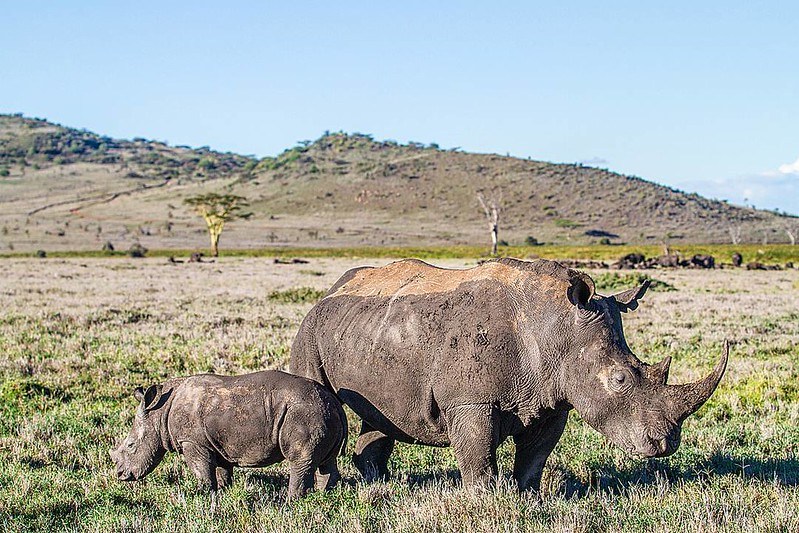Try an experiment with a family member or friend and ask them to give you a quick answer to the following question: “When you think about conservation, or community conservation, what comes to mind?” If they say “land remediation”, for instance, then ask them to name the place they’re thinking of. Land remediation where?
I’ll bet you ten Euros that at least eight times out of ten the answer to the second question will be “Africa”, or a country in Africa, or maybe Latin America or Asia.
You see, those of us who are lucky enough to live in rich industrial societies with well-organized healthcare systems and stable democratic institutions tend to think of conservation as an activity that happens elsewhere and often far away. Conservation is what NGOs do in Namibia or the South African Karoo. Conservation is what good souls in Madagascar devote their lives to, defenders of dwindling lemur populations and weird-looking trees. Conservation is the reason why scientists travel to Brazil or the forests of Papua New Guinea.
In other words, conservationists are those people who travel to far-off places to save animals and plants that may be “on the brink of extinction”. Something that is on the brink of extinction or “critically endangered”, in our minds, is something that is at least a 14-hour flight from our urban comforts and IKEA parking lots. That it seldom crosses our minds that there might be something worth conserving or preserving nearer to home says quite a lot about the world we’re building for our children, but let’s leave that aside for a moment and dwell on the concept of “community conservation”.
Organizations that embrace this approach believe that a resource can be used or harvested sustainably and preserved for posterity if you involve the community that depends on this resource. The idea that you have to involve the community is central to the approach, and it has led to many success stories around the world (although not always). Those who criticize the approach do so not because they think it's a bad idea to involve “local stakeholders” but because they see too much meddling from the outsiders or foreigners who hatch these projects to begin with.
Now let’s take a step back and consider all this inspiring stuff I just wrote about. All these good folks doing this work in remote places far away from home. Some people donate money to these causes, and perhaps they regard these donations as a necessary transfer of wealth and technical resources from the rich world to the poor world.
We picture these NGO folks on the tropical frontlines, sitting in a village square somewhere, with a group of brown-skinned and shy-faced people around them. They are explaining why it’s necessary to preserve something or other, or why the men of the village should stop hunting certain animals, a type of baboon perhaps or a rare turtle. I am describing a picture I saw on a website recently.
Community conservation makes us feel good and so does the public-spiritedness of the people who do it. These people don't travel to the other side of the world to push people around with bayonets, Bibles or E.O. Wilson books. And whatever the critics say, the idea is that local people should benefit in the end.
Which brings me to the locals or natives who live in rich industrial societies.
In parts of western Europe, for instance, we’ve seen the demise of many species of butterfly in the last few years. There are scientists who are working on the issue, and many people are worried, but I wonder to what extent the neighbors or homeowners in those parts that have seen the biggest declines are engaged in communal or civilian efforts to boost butterfly numbers?
Many countries in Europe, it is true, are doing their best to monitor local wildlife, and the ones leading the effort are the regional governments, universities and civil society organizations or associations. The people who travel overseas to give courteous talks to dark-skinned villagers also host talks in rich suburban town halls.
But notice the difference: We feel good when people in rich industrial societies volunteer to plant trees, or when they organize weekend bird or butterfly watching expeditions with their colleagues. We feel good when a young boy waddles into a pond in his waterproof boots to discover a type of reed. We are helpers, we think, our brother’s keeper.
We then turn around and travel overseas to ask villagers somewhere to do these same things (waddle into the pond to re-discover, plant trees, etc.), but then we ask for something more: We ask people to make better use of the resources they depend on. Don't waste or burn down these resources, we say. Save what you have for your children and posterity, we add wisely. In some cases, we even ask people to change their livelihoods, or we hatch plans to give them livelihoods that we think are better for them.
We say to them: Protect the commons and share equitably with your neighbors.
You don't hear many politicians and industry leaders in our parts of the world preaching this stuff to their rich shareholders and voters, do you? And if you hear them preach it, do they really mean it? Look behind the climate “pledges” of several industries, for instance, and prepare to encounter nothing but greenwashing.
Consider the turtledove. I think I spotted one of these birds in my garden the other day. I read somewhere not long ago that these birds are in decline in Belgium and beyond, and I assume that someone is currently “working on the issue”. This, you see, is the assumption we all make in the industrialized world: They — the scientists and experts — are working on it, so everything is OK!
Now, can you imagine someone from an NGO doing the rounds in the more affluent outer districts or suburbs of our cities, telling rich homeowners that certain behaviors or lifestyles might be detrimental to song thrushes or turtledoves or golden orioles or all the species of butterfly and beetle that are on the brink of collapse across western Europe?
A young PhD, for instance, shaking white people’s hands instead of brown-skinned hands: “Hey, Mr. Rees, that enormous lawn of yours, and that garage full of gas-guzzling cars, and that wood chipper that rasped and groaned for three hours last Tuesday…. it’s gotta stop, Sir.” (This actually happened in my neighborhood the other day: A homeowner with a brand new pool and no solar panels decided to do his wood chipping in situ, and so he regaled us with 3 hours of ear-piercing noise. Adieu to the lonesome turtledove, I guess. And the woodchips, you ask, for horticulture? Of course not: Carted away in a big truck.)
The widely-held assumption that only poor foreigners should do their own conservation work is flawed. Just as flawed is another assumption that flows from the first: Unlike those poor villagers overseas who depend on the Pulai tree for firewood or who eat turtle meat, we, the rich and educated denizens of the developed world, don't really depend on these insects and birds that come by our gardens because our lunch is served for us in the supermarket, so it’s all right if the experts and only the experts (or certain volunteer types) concern themselves with these scientific marginalia while we busy ourselves with other more important things. We have loftier goals and busier schedules, you know.
Right.
Go tell that bullwash to a village elder in Papua New Guinea. He, no doubt, has other things to do than to hear lectures from well-meaning foreigners wearing self-deprecating smiles.
Ah, but the Germans, you might say. They are actually doing something to reverse the alarming decline in insect numbers, what some people have called the German “insect apocalypse”. They are switching off night lights. They are asking people to please cut back on insecticides. And how about the British and their famous Big Garden Birdwatch, the world’s biggest wildlife survey. That weekend-long event counts as community conservation, does it not?
Well, yes, why not, but that's not how community conservation looks from the standpoint of the people overseas who get recruited into these initiatives. We are asking people to do things that no NGO or politician would ever ask a rich suburbanite to do.
Protect the commons and share equitably with your neighbors. Of course. Closer to home it’s don't tread on my comforts and get out of the way.
It’s a miracle that people in the “developing” world, the ones we recruit to save animals and forests and say our community prayers for us, haven't called an ancient curse on us instead, their well-meaning protectors.
By Ramiro Austin


